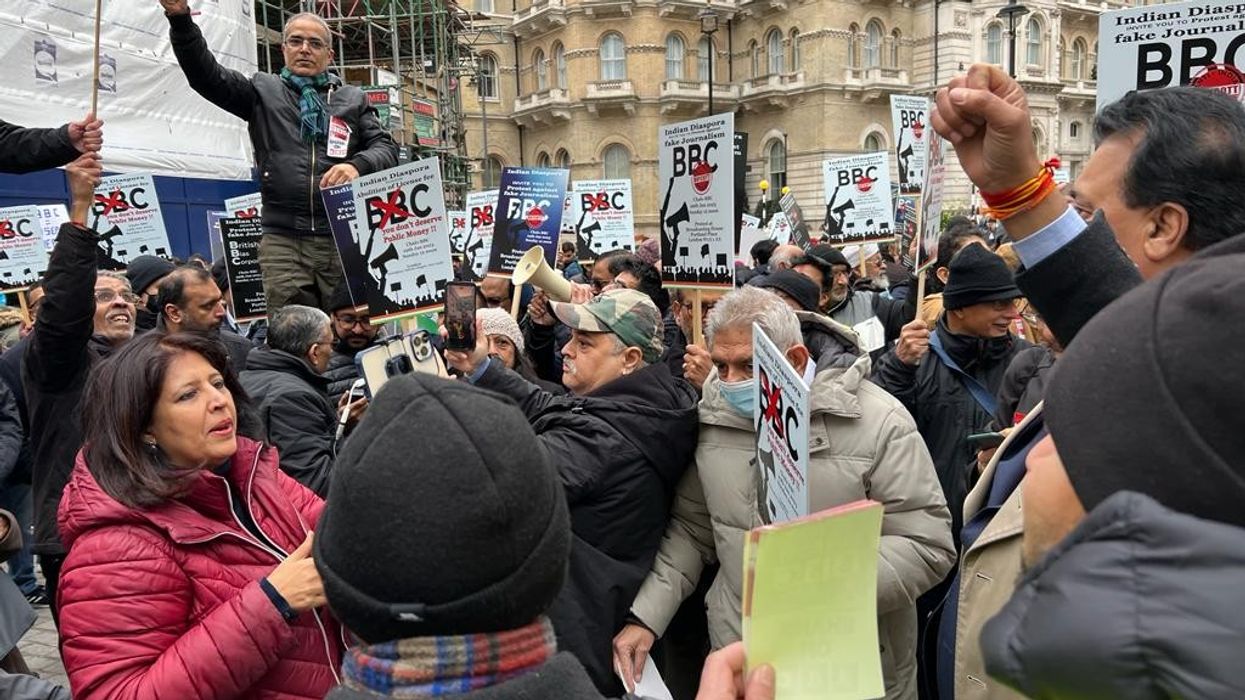Hundreds representing different Indian diaspora organisations gathered outside the BBC headquarters in central London on Sunday to protest against what they branded as “fake news” behind the broadcaster’s controversial series on Prime Minister Narendra Modi.
The “Chalo BBC” protests were coordinated across BBC studios in London, Manchester, Birmingham, Glasgow and Newcastle and brought together groups such as Indian Diaspora UK (IDUK), Friends of India Society International (FISI) UK, Insight UK and Hindu Forum of Britain (HFB), among others.
The protesters waved placards reading “Boycott BBC”, “British Bias Corporation” and “Stop the Hinduphobic Narrative”, and chanted slogans such as “Shame on BBC” and “Bharat Mata Ki Jai”.
“The documentary on Prime Minister Modi was very biased given that he was completely cleared by the Indian judiciary, and yet the BBC decides to become judge and jury,” said Jayu Shah from FISI UK, among the protesters in London.
“The BBC needs to be investigated internationally and the directors of the board of the BBC should be investigated for failing in their duty as a public broadcaster,” he said.
Another protester said she had come with her wheelchair-bound mother because they felt strongly against the “false and anti-India propaganda” they felt was being spread by the British broadcaster.
The two-part BBC documentary, which claims it investigated certain aspects relating to the 2002 Gujarat riots when Prime Minister Modi was the CM of that state, has been trashed by the Ministry of External Affairs as a “propaganda piece” that lacked objectivity and reflected a “colonial mindset”.
The BBC has defended the programme as “rigorously researched according to the highest editorial standards”.
British Prime Minister Rishi Sunak has defended Prime Minister Modi over the BBC documentary, asserting that he “didn’t agree with the characterisation” of his Indian counterpart.













